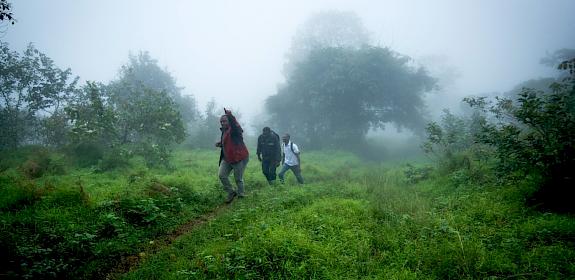Entrepreneurial restoration: how restoring landscapes can work for both ecosystems and people
Nature restoration experts from across Europe and beyond recently gathered for a deep examination of the ecological aspects of restoration. TRAFFIC’s participation helped put sustainable use of wild resources on the agenda: to achieve landscape restoration that is effective in the long-term, it must benefit people as well as achieve conservation goals.
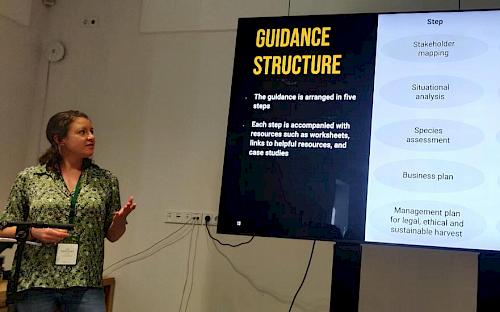
Almost 700 participants from 47 countries gathered in Tartu, Estonia, for the 14th European Conference on Ecological Restoration (SERE 2024), organised by the European Chapter of the Society for Ecological Restoration (SER). SERE 2024 is a major event for anyone working on landscape restoration. With the European Nature Restoration Law having entered into force just days before, the event was abuzz with enthusiasm and excitement.
In a special session on “Supporting restoration through the development of nature-positive economies”, experts from TRAFFIC explored how creating local benefits from the sustainable use of wild plants and fungi can incentivise a shift from the overexploitation of wild species and habitats that is degrading European landscapes. Promoting sustainable and equitable use and trade in natural resources can complement regulatory interventions to generate local income and benefits, as well as support effective landscape management.
TRAFFIC, in partnership with FairWild and the IUCN Sustainable Use and Livelihoods Specialist Group, has been funded by the Cambridge Conservation Initiative’s Endangered Landscapes & Seascapes Programme to develop guidance that will support landscape restoration practitioners with integrating sustainable trade of wild plants and fungi into their projects. At the Endangered Landscapes & Seascapes Programme-organised event, TRAFFIC shared a framework for guidance to support sustainable use, and case studies from across Europe, with a diverse audience of scientists, practitioners and policy makers.
Sustainable use of wild resources remains a highly significant issue to European citizens – and a big opportunity for sustainable nature-based enterprise."
Bryony Morgan, Project Manager at TRAFFIC
A survey of households across European countries in 2016 found that 90% of respondents consumed non-timber forest products such as berries and mushrooms, and around one quarter collected them. Around 14% of the products collected were estimated to be sold, with a value of around EUR 3.5 billion (USD 3.9 billion) per year.
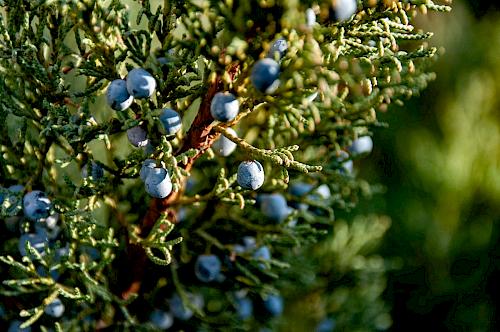
Some of the most valuable species were truffles, followed by forest nuts, berries, mushrooms, medicinal and aromatic herbs, and saps and resins.
The sale of non-timber forest products can have significant benefits for communities living in or around restored landscapes, and provide opportunities that could finance landscape management.
However, landscape restoration practitioners may find it challenging to ensure harvest is sustainable, and to access profitable markets. TRAFFIC is drawing upon existing tools and resources from FairWild Standard, The Global Biodiversity Standard, and the Five-dimensional Sustainability Assessment Framework (developed in partnership with IIED, IUCN SULi and others) to create guidance and an e-learning tool that can support practitioners to overcome these barriers. Feedback received during the conference will be integrated into the finalised guidance before being piloted by current grantees of the Endangered Landscapes & Seascapes Programme who are keen to receive further support.
With the ambition embedded in Europe’s Nature Restoration Law, and the CBD’s Global Biodiversity Framework, it is hoped that the guidance will make an important contribution to achieving the nature restoration targets for 2030 and beyond.
The SERE 2024 conference was an amazing opportunity to see the innovative ways in which restoration practitioners are engaging with local producers and companies to sell wild plants and fungi from within their landscapes. We are excited to start working with some of the projects funded by the ELSP to pilot our guidance, and to support them with the development of sustainable harvest management plans and business strategies."
Amy Woolloff, Research Support Manager at TRAFFIC
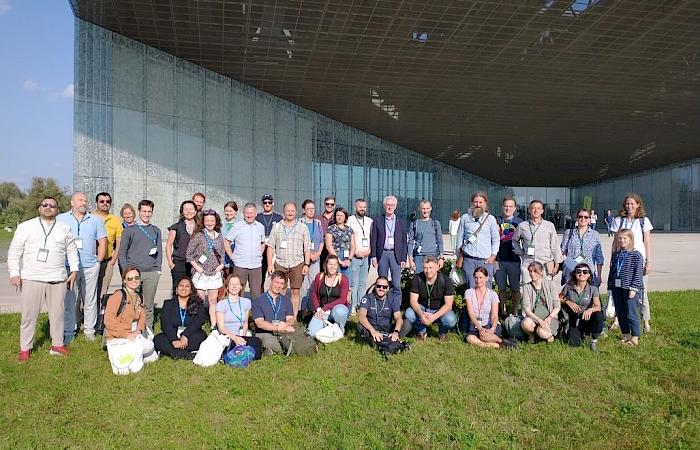
Notes:
TRAFFIC’s project, ‘Enhancing restoration by sustainable use,’ is supported by the Endangered Landscapes & Seascapes Programme, which is managed by the Cambridge Conservation Initiative in partnership with Arcadia.
About Endangered Landscapes & Seascapes Programme
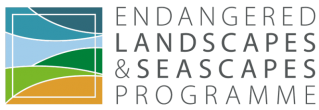
The Endangered Landscapes & Seascapes Programme aims to restore natural ecological processes, species populations and habitats for a better and more sustainable future. It signals a shift away from a narrative of ‘slowing declines’ and ‘no net loss’ to a positive and creative conservation agenda in which the potential of our land and seas is recognised. The Endangered Landscapes & Seascapes Programme is managed by the Cambridge Conservation Initiative in partnership with Arcadia, a charitable foundation that works to protect nature, preserve cultural heritage, and promote open access to knowledge.
About the Cambridge Conservation Initiative

The Cambridge Conservation Initiative (CCI) is a collaboration between ten leading biodiversity conservation organisations based in and around the city of Cambridge and the University of Cambridge.
By catalysing strategic partnerships between leaders in research, education, policy and practice CCI aims to transform the global understanding and conservation of biodiversity and, through this, secure a sustainable future for biodiversity and society.
The CCI partners are BirdLife International, British Trust for Ornithology (BTO), Cambridge Conservation Forum (CCF), IUCN, Fauna & Flora International (FFI), RSPB, TRAFFIC, Tropical Biology Association (TBA), UNEP-WCMC, Wildlife Conservation Society (WCS) and the University of Cambridge.
About Arcadia

Arcadia helps people to conserve and restore nature, record cultural heritage, and promote open access to knowledge. Since 2002 Arcadia has awarded more than $1.2 billion to organizations around the world.


